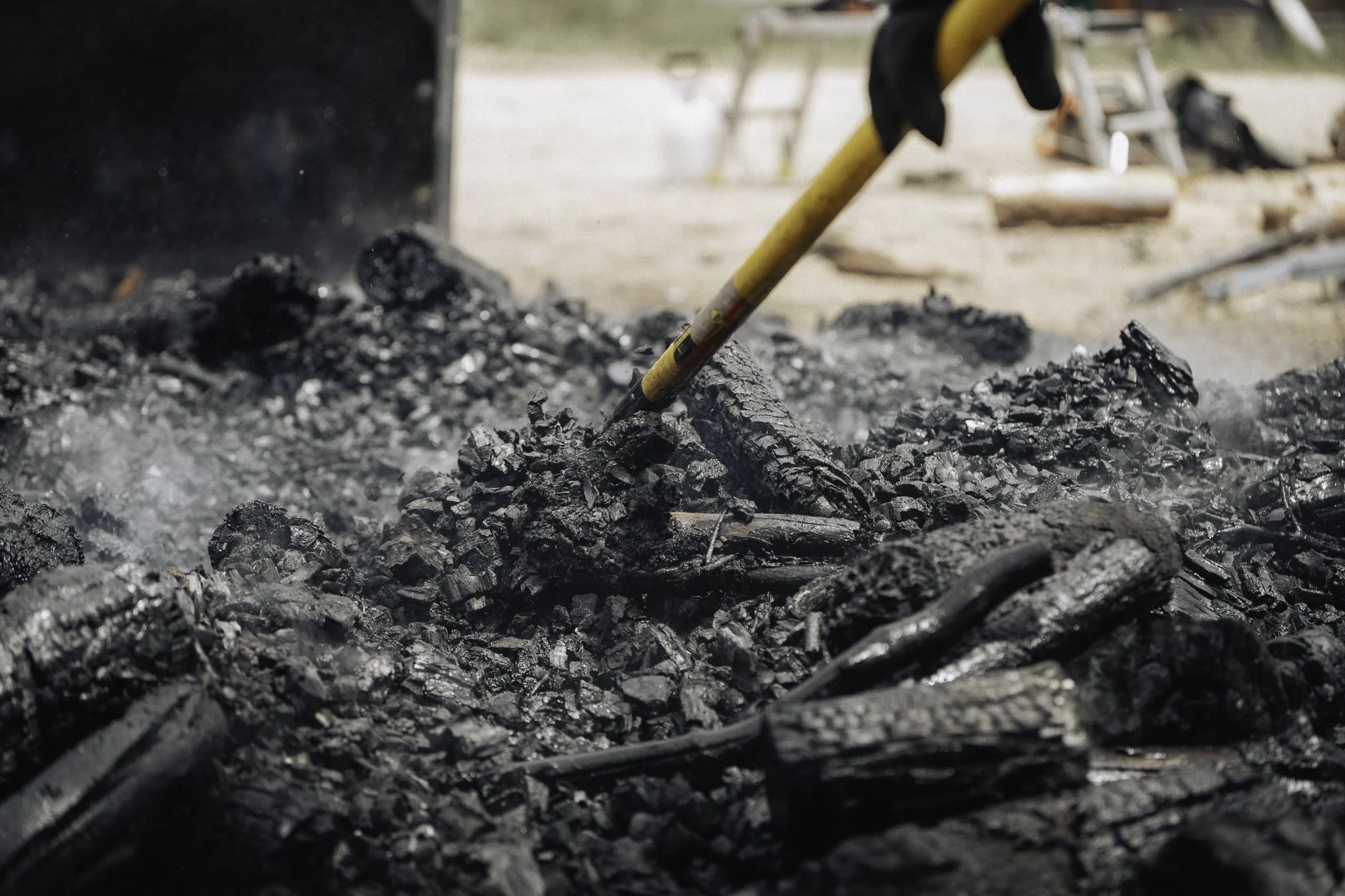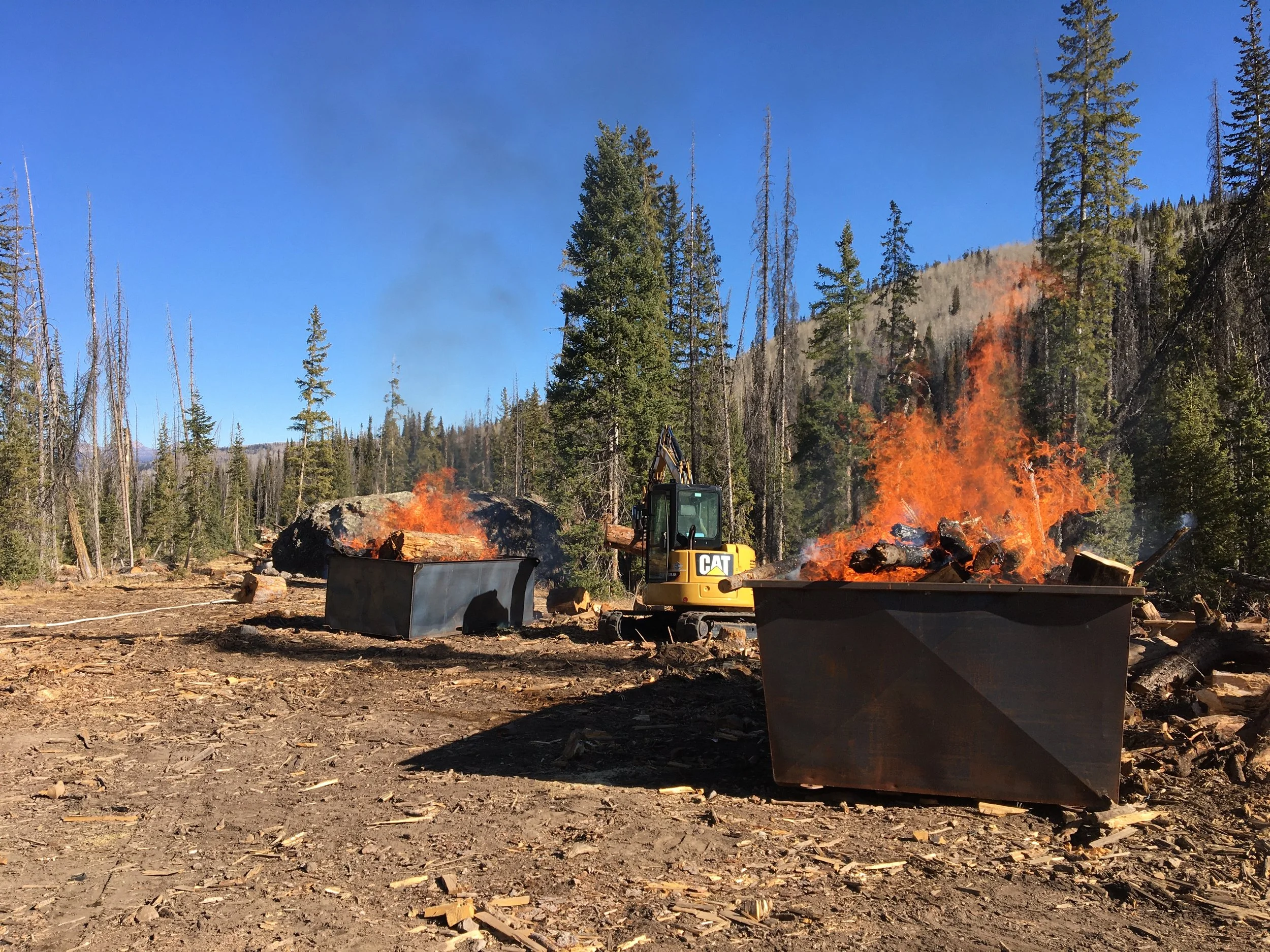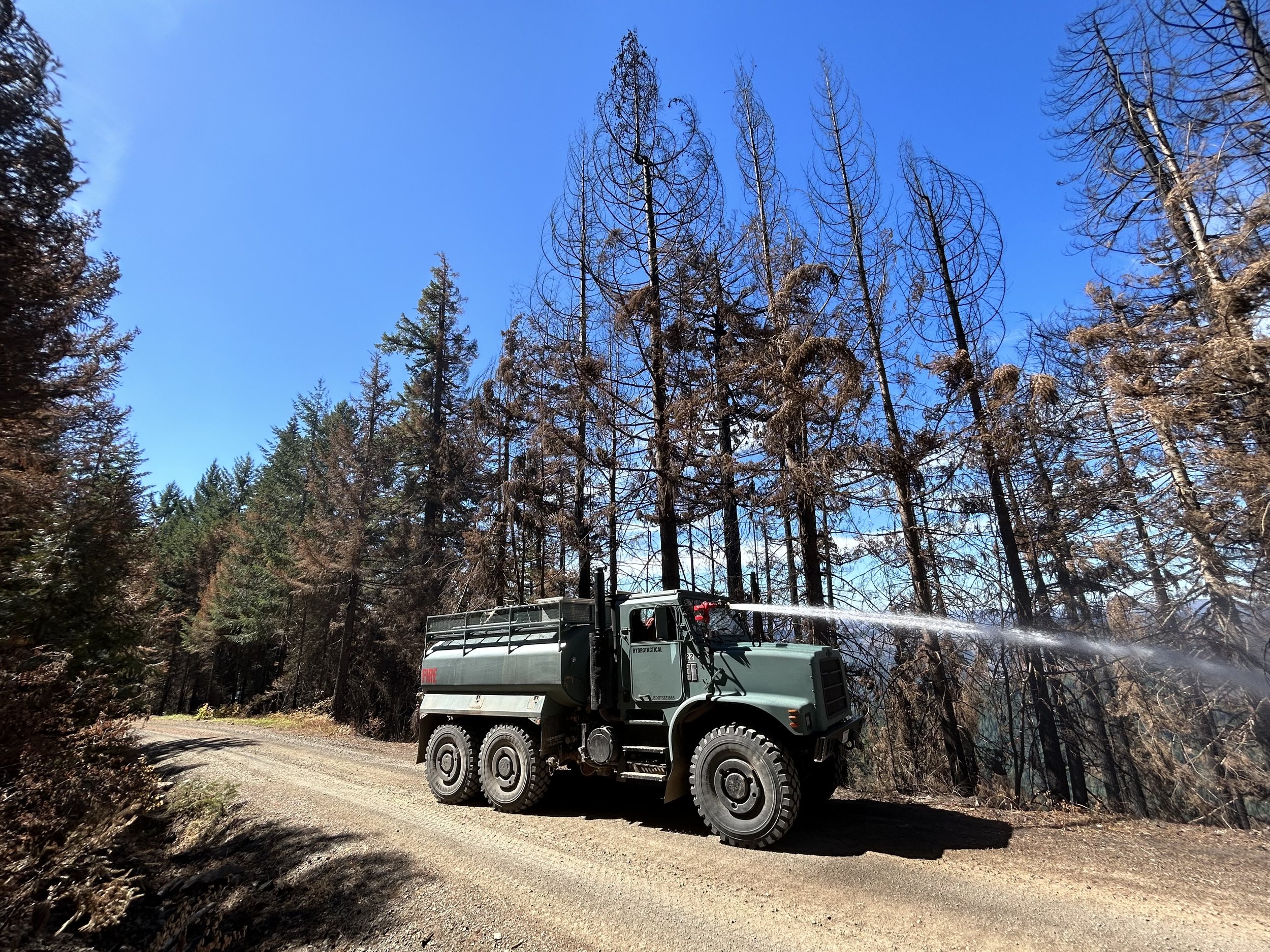Paving a New Path
Bringing Sustainable Solutions to Modern Forestry Practices
Landscape Scale Biochar Production
At Circle Forestry, we use mobile flame-cap kilns to convert forest waste into high-quality biochar directly on-site, eliminating the need for costly hauling or open pile burning.
Our equipment is designed to operate efficiently at landscape scale, making it ideal for large forest restoration projects, fuels reduction, and defensible space work. By turning hazardous woody debris into stable carbon, we help landowners and agencies reduce wildfire risk while creating a valuable soil amendment.
This approach offers a climate-smart, regenerative alternative to traditional waste disposal methods.
Safety Is Priority
Our mobile biochar operations are supported by a tactical water tender, providing an added layer of safety and control in the field. With high-capacity water storage, pressurized hose reels, and rapid deployment capability, the tender allows our crew to actively manage fire behavior during burns and ensure thorough quenching of biochar at the end of each batch. It also provides critical initial attack support in remote areas where other water sources may be limited. This added infrastructure gives landowners and agencies confidence that fire risk is being managed responsibly and professionally.
The Power of Biochar
What is biochar?
Biochar is a carbon-rich material created by heating organic matter, like wood or plant waste, in a low-oxygen environment.
When added to soil, biochar enhances water retention, supports beneficial microbes, and prevents nutrient loss, making it a powerful tool for sustainable land management.
Digging Deeper
Biochar is produced through a process called pyrolysis, where organic materials are heated at high temperatures (typically 300–700°C) in a low-oxygen environment. This process prevents combustion, instead breaking down the material into biochar and releasing bio-oil and gases that can be used for energy.
At Circle Forestry, we create biochar using wood waste from arborist projects, ensuring trees are recycled into a valuable, soil-enhancing resource.
Biochar in Soil
Minimizes nutrient loss for healthier soil
Balances soil pH and redox potential (Eh)
Supports a thriving microbial ecosystem in the soil
Improves water retention and moisture — Slowing wildfires from the home
Enhances soil resilience by adding long-lasting carbon, reducing degradation
Boosts plant growth, especially in nutrient-deficient soils
The Power of Biochar
Mitigates wildfire risk by converting excess fuel loads into carbon-rich, water-holding soil amendments
Prevents carbon from being released into the atmosphere as CO₂. Instead, it locks carbon into the soil, reducing greenhouse gases and improving soil health at the same time.
Helps combat drought by retaining moisture in the soil
Reduces fertilizer dependence by holding nutrients in place
Restores depleted soil by creating a healthy environment for beneficial microbes
Improves manure and compost quality by reducing odors and supporting good microbes
Remediates polluted soil by trapping heavy metals and contaminants while minimizing odor
Enhances sustainable building materials when used in cement, plasters, and other applications
Promotes animal health through improved feed and bedding applications






